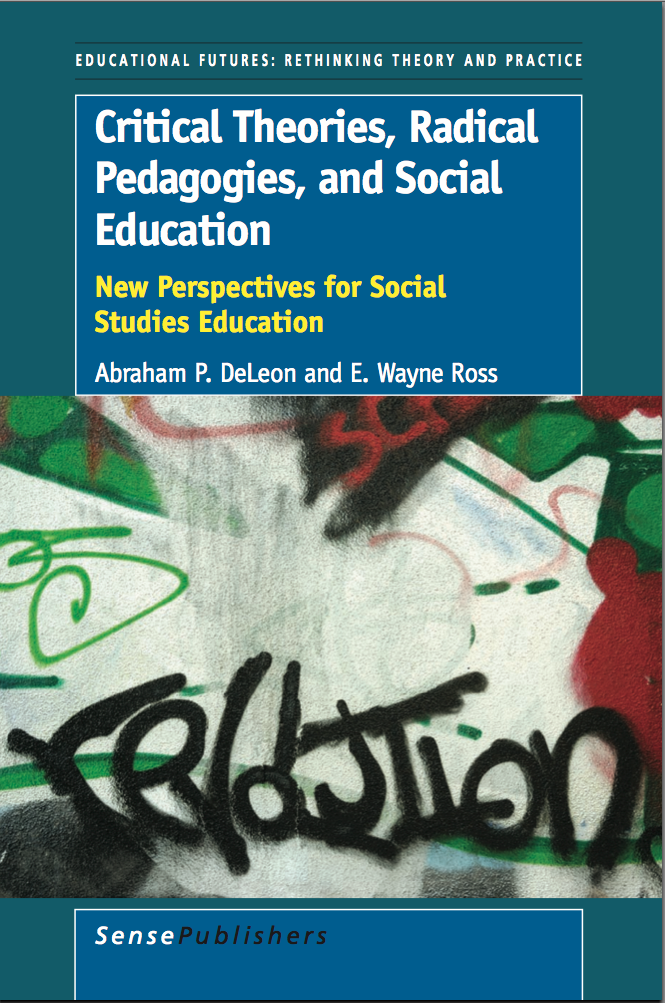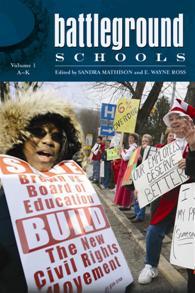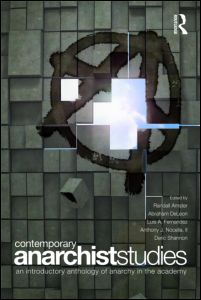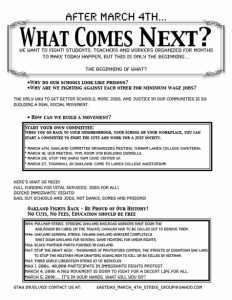Routledge has just published the second edition of Education as Enforcement: The Militarization and Corporatization of Schools, edited by Kenneth J. Saltman and David A. Gabbard.
I’m pleased to have contributed co-authored chapters to both editions (with Kevin D. Vinson and John F. Welsh for the second edition).
The first volume to focus on the intersections of militarization, corporations, and education, Education as Enforcement exposed the many ways schooling has become the means through which the expansion of global corporate power are enforced. Since publication of the first edition, these trends have increased to disturbing levels as a result of the extensive militarization of civil society, the implosion of the neoconservative movement, and the financial meltdown that radically called into question the basic assumptions undergirding neoliberal ideology. An understanding of the enforcement of these corporate economic imperatives remains imperative to a critical discussion of related militarized trends in schools, whether through accountability and standards, school security, or other discipline based reforms.
Education as Enforcement, Second Edition elaborates upon the central arguments of the first edition and updates readers on how recent events have reinforced their continued original relevance. In addition to substantive updates to several original chapters, this second edition includes a new foreword by Henry Giroux, a new introduction, and four new chapters that reveal the most contemporary expressions of the militarization and corporatization of education. New topics covered in this collection include zero-tolerance, foreign and second language instruction in the post-9/11 context, the rise of single-sex classrooms, and the intersection of the militarization and corporatization of schools under the Obama administration.
Table of Contents
Foreword
Governing Through Crime and the Pedagogy of Punishment, HENRY A. GIROUX
Introduction to the Second Edition, Kenneth J. Saltman & David A. Gabbard
Introduction to the First Edition, Kenneth J. Saltman
1. The Function of Schools: Subtler and Cruder Methods of Control, NOAM CHOMSKY
2. Rivers of Fire: BPAmaco’s impact on Education, KENNETH J. SALTMAN and ROBIN TRUTH GOODMAN
3. Education IS Enforcement: The Centrality of Compulsory Schooling in Market Societies, DAVID A. GABBARD
4. Cracking Down: Chicago School Policy and the Regulation of Black and Latino Youth, PAULINE LIPMAN
5. Facing Oppression: Youth Voices from the Front, PEPI LEISTYNA
6. Tased and Confused: From Social Exclusion to Shock in the War on Youth, CHRISTOPHER G. ROBBINS
7. Freedom for Some, Discipline for “Others”: The Structure of Inequity in Education, ENORA R. BROWN
8. Forceful Hegemony: A Warning and a Solution for Indian Country, FOUR ARROWS
9. From Abstraction and Militarization of Language Education to Society for Language Education: Lessons from Daisaku Ikeda and Tsunesaburo Makiguchi, JASON GOULAH
10. The Proliferation of JROTC: Educational Reform or Militarization, MARVIN J. BERLOWITZ and NATHAN A. LONG
11. Combat Girls: What Single-Sex Classrooms Have To Do With the Militarization of Women’s Bodies, ROBIN TRUTH GOODMAN
12. Education for War in Israel: Preparing Children to Accept War as a Natural Factor of Life, HAGGITH GOR
13. Post-Columbine Reflections on Youth Violence as a (Trans)National Movement, JULIE WEBBER
14. Imprisoning Minds: The Violence of Neoliberal Education or “I Am Not For Sale”, SHEILA LANDERS MACRINE
15. Taking Command: The Pathology of Identity and Agency in Predatory Culture, RON SCAPP
16. Commentary on the Rhetoric of Reform: A Twenty Year Retrospective, SANDRA JACKSON
17. Securing the Corporate State: Education, Economism, and Crisis in the Age of Obama, ALEX MEANS
18. Controlling Images: Surveillance, Spectacle, and High-Stakes Testing as Social Control, KEVIN D. VINSON, E. WAYNE ROSS, and JOHN F. WELSH
19. The Politics of Compulsory Patriotism: On the Educational Meanings of September 11, MICHAEL APPLE
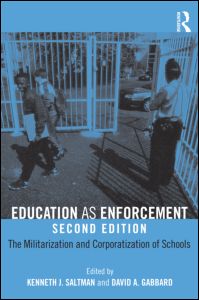
 Follow
Follow

